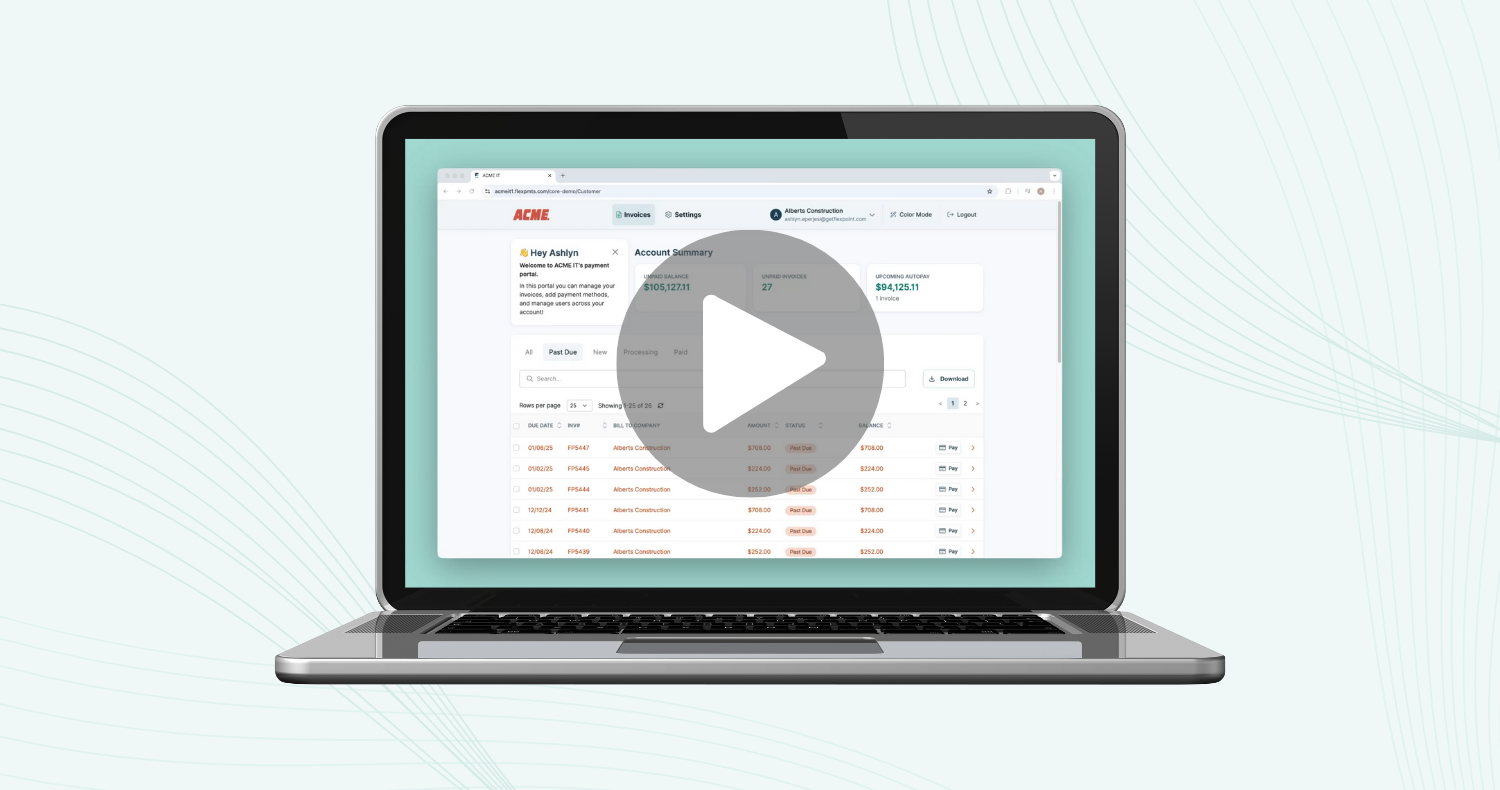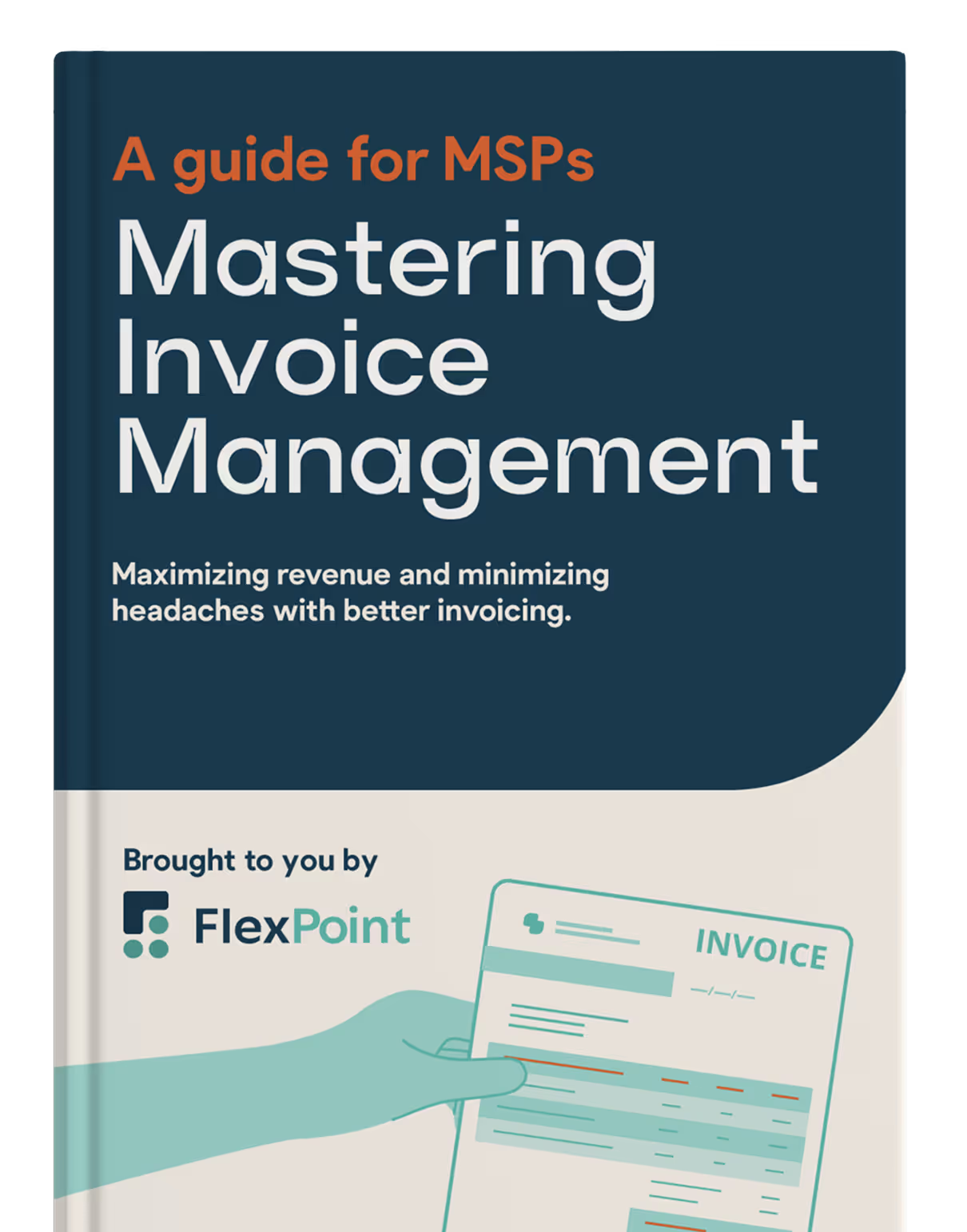MSP Billing Compliance: Why It Matters and How to Get It Right
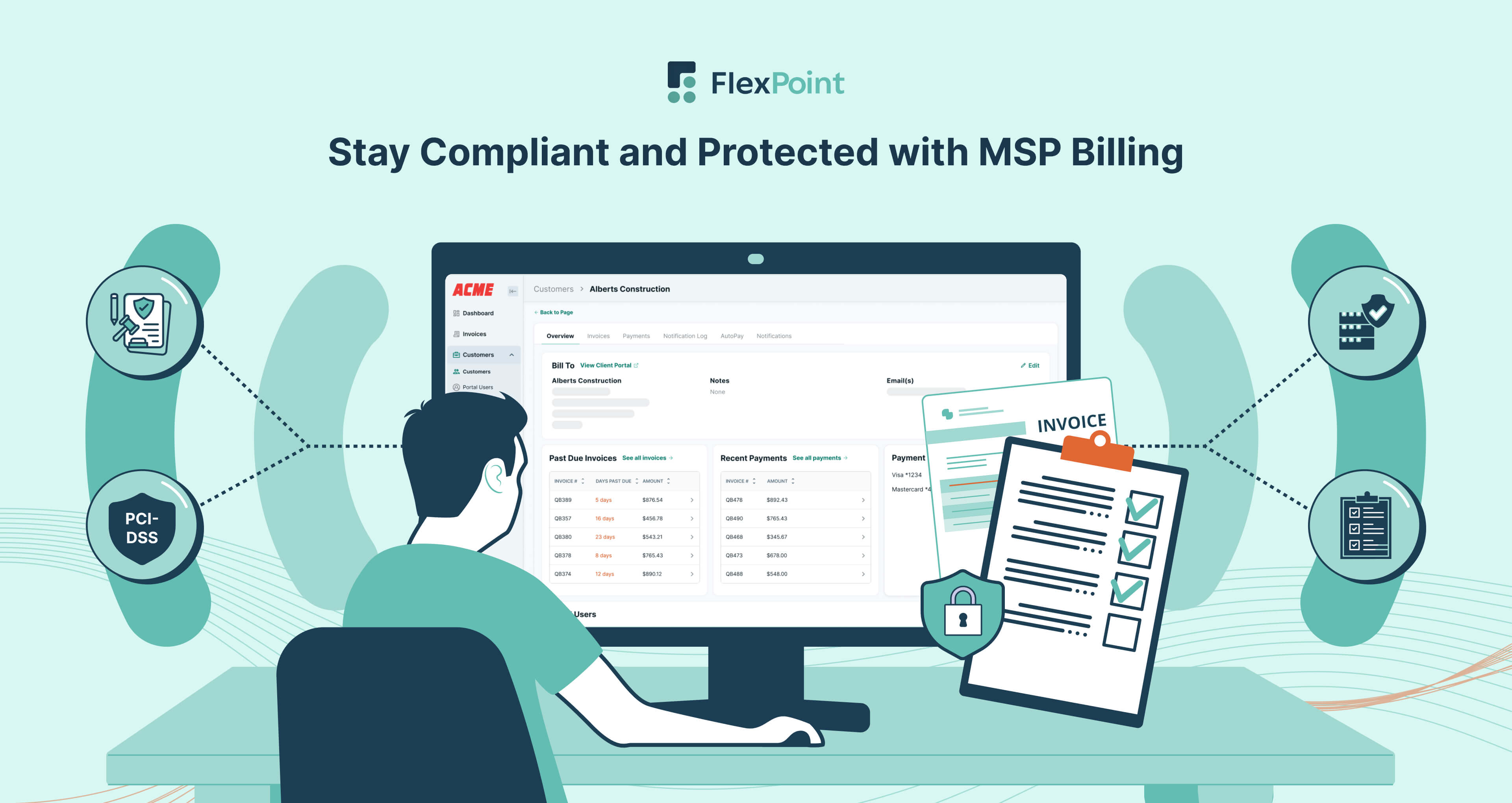
Billing compliance mistakes can result in lost revenue, legal trouble, or damaged client relationships for your MSP. According to PYMNTS, 80% of businesses lost clients because of payment errors.
Misclassifying services, applying incorrect surcharges, missing client approvals, and overlooking contractual obligations are common billing errors that can lead to non-compliance. Improper billing processes can trigger audits, disputes, or even lawsuits, which can impact your bottom line and reputation.
In this article, we’ll simplify the complexity related to MSP billing compliance. We will also discuss compliant billing practices to help you stay audit-ready, improve transparency, and streamline billing as you scale.
{{toc}}
The Importance of MSP Billing Compliance
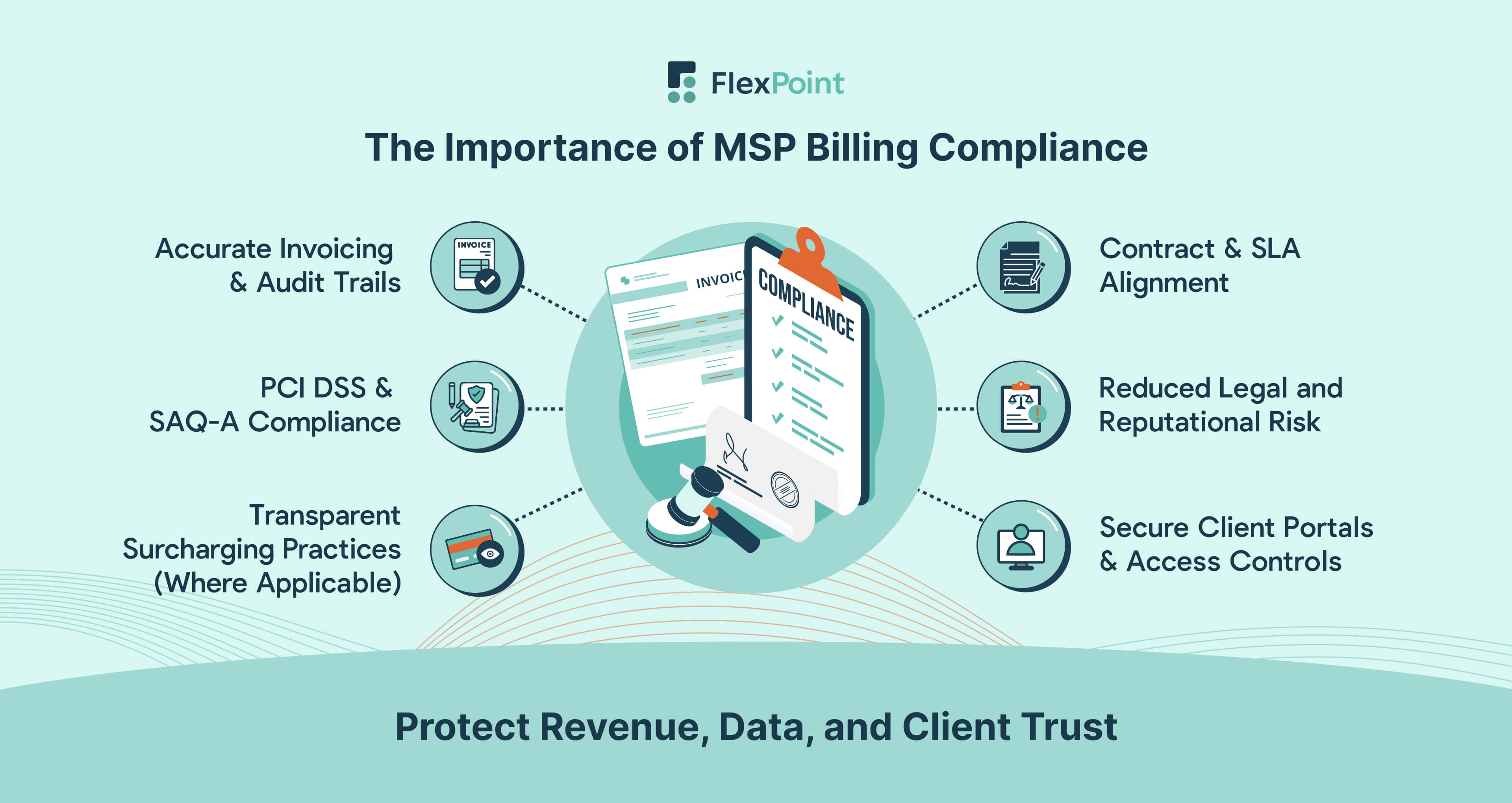
MSP billing compliance encompasses all billing activities, including sending detailed quotes, precisely tracking deliverables, accurate invoicing, timely payment collection, and adherence to tax laws.
In addition, your invoices must comply with data protection regulations, such as the General Data Protection Regulation (GDPR) and the Payment Card Industry Data Security Standard (PCI DSS), as well as the terms outlined in your client contracts or service level agreements (SLAs).
MSPs handling cardholder data must ensure PCI DSS compliance by ensuring secure storage, encrypted payment transmission, and role-based access to financial systems. Non-compliance risks penalties, breaches, and loss of trust.
The Self-Assessment Questionnaire A (SAQ A) provides a simpler compliance option for MSPs that outsource all cardholder data functions if they meet certain conditions. To qualify, MSPs cannot store, process, or transmit cardholder data on their systems or premises. Instead, all cardholder data must be handled by PCI-compliant third-party payment solutions.
MSPs are still responsible for ensuring secure interfaces, like client portals or payment forms, maintaining proper access controls, and having documented agreements with providers like FlexPoint to ensure end-to-end compliance.
Billing compliance also means charging clients only for the services delivered at the correct rates and within the agreed-upon timelines. It also involves maintaining detailed audit records, protecting and securing client payment information, and staying current with state and federal regulations.
For instance, some U.S. states allow surcharging credit card payments with limits, while others prohibit them altogether. Misapplying surcharges can result in fines or client payment disputes.
Failing to comply with billing standards can have serious financial and reputational consequences, potentially leading to government audits, legal fines, or contract disputes.
Inaccurate invoices and unethical billing practices damage client trust, negatively impacting your MSP in the long term. According to JumpCloud, 23% of SME companies have terminated their MSP contracts due to negative payment experiences and poor customer service. Your MSP must, therefore, prioritize transparent and compliant billing.
Billing compliance has a multifold impact on your MSP. Finance teams require tools to track billable hours, expenses, and service usage accurately. Service delivery teams must clearly document scope changes or overages. Your MSP leadership team needs to develop policies to audit invoices, track taxes, and protect payment data. Non-compliance in any of these can lead to revenue loss, missed client renewals, potential legal issues, and costly setbacks to your MSP.
Conversely, strong billing compliance is a competitive advantage for your MSP. It reduces your payment audit risk, minimizes legal issues, prevents exposure to compliance/regulatory penalties, and enhances client transparency. Fewer billing disputes and secure payment solutions lead to faster payment collection and better client relationships, improving your MSP's reputation.
{{ebook-cta}}
5 Strategies and Best Practices for Ensuring MSP Billing Compliance
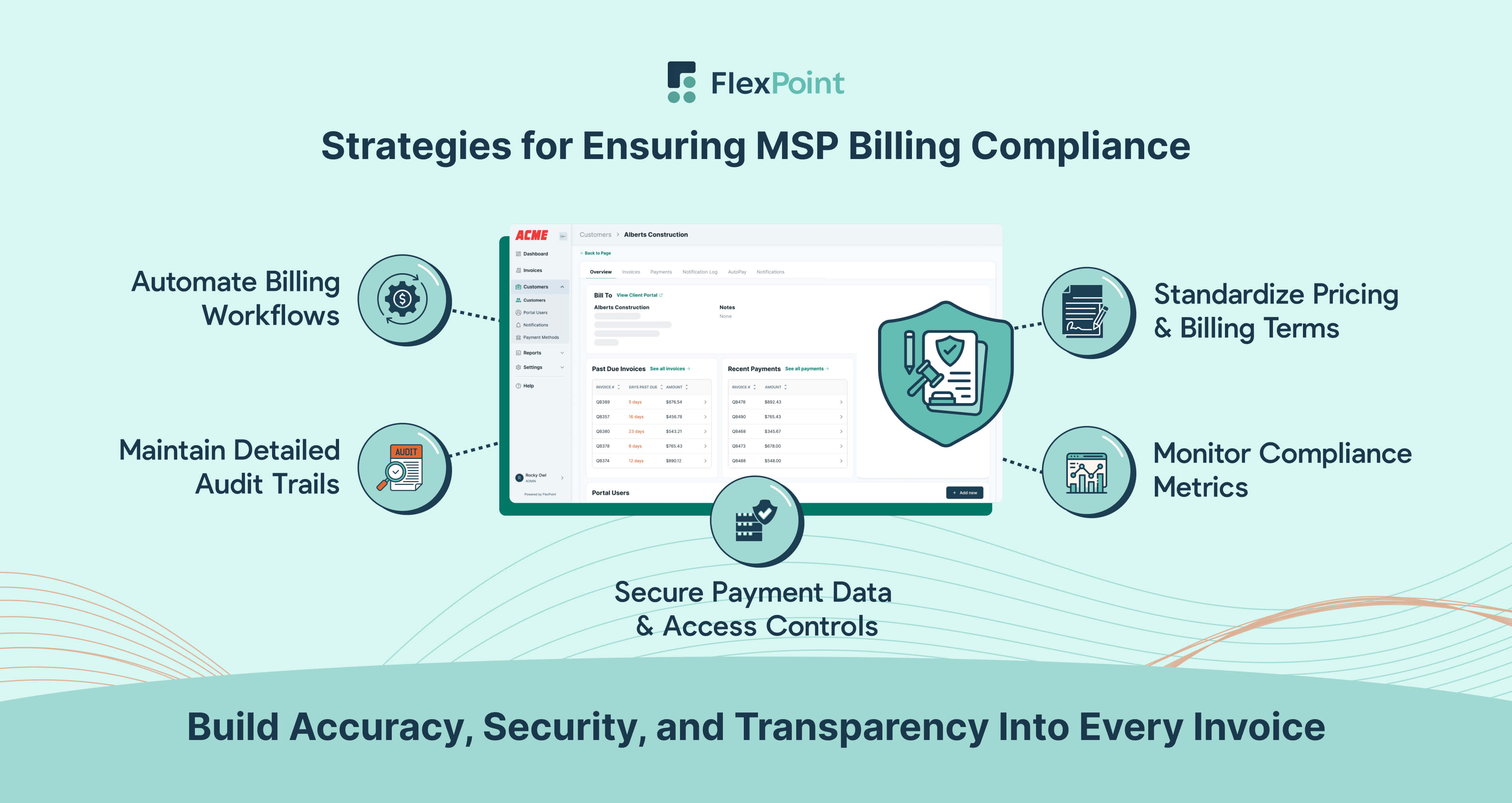
MSPs need a compliance-focused approach to billing. As your services grow and client needs become more complex, even small billing mistakes, such as overcharges, manual data errors, inaccurate charges, or missed tax obligations, can cause significant problems.
Develop a billing process that ensures every invoice is accurate, easy to audit, and compliant with regulatory requirements.
Here are five proven strategies for MSPs to ensure billing compliance:
1. Automate Billing Workflows to Minimize Human Error
Manual billing is time-consuming, inconsistent, and prone to errors. Your team may overlook a time entry, apply the wrong rate, or miss a contractual billing clause while managing multiple clients and service tiers. These mistakes delay revenue collection and damage client relations.
According to PYMNTS, automation reduces billing errors and payment collection delays. You can automate billing workflows to align invoices with service agreements, apply consistent pricing rules, and capture billable time accurately. It helps eliminate the inconsistencies and mistakes of manual processes.
The billing platform must also integrate with your Professional Services Automation (PSA) tools (ConnectWise, SuperOps, HaloPSA, or Autotask) and Accounting Software (QuickBooks Online, QuickBooks Desktop, Xero) to pull data directly from ticketing and monitoring systems. It ensures billing accuracy and increases efficiency.
Automating billing accuracy reduces disputes due to human error and ensures that invoices accurately reflect the contractually agreed-upon pricing. Your staff can save time from repetitive tasks while consistent payments improve cash flow.
For example, CompuNet Technologies, an Orange County-based managed service provider (MSP), spent over five hours per month on its manual billing process. It led to inefficiencies, delayed payments, and potential inaccuracies, affecting cash flow and client satisfaction. They automated their billing and payment collection with FlexPoint, achieving a 95% improvement in billing speed. FlexPoint integrated with their existing systems to increase invoicing efficiency and accuracy. The AutoPay feature helped CompuNet Technologies collect payments four times faster.

2. Maintain Detailed Documentation and Audit Trails
Billing compliance isn’t just about being accurate. You must have supporting documentation for all invoices. Regulators and clients may ask for records of services provided, billed amounts, and contract adherence.
For example, suppose your MSP supports a government agency or a healthcare provider. In that case, you must also comply with documentation requirements under regulatory frameworks such as HIPAA (Health Insurance Portability and Accountability Act) or FISMA (Federal Information Security Management Act).
Lacking a clear audit trail and supporting evidence can lead to disputes and potential compliance challenges.
MSPs should maintain accurate and up-to-date records, including:
- Time logs and ticket histories
- Signed contracts and amendments
- Invoices with breakdowns of services
- Payment confirmations and receipts
- Notes on changes in service scope or pricing
Compliance-focused billing systems, such as FlexPoint, can help create detailed audit trails by tracking user activity, invoices, and payment updates. It protects your MSP against regulatory scrutiny and builds client trust. The branded client portal enables clients to track service usage, view upcoming payments, and communicate with your team.
3. Implement Access Controls and Secure Payment Handling
According to Kaseya, cybersecurity is the biggest challenge for 78% of MSPs. A core element of billing compliance involves effectively managing and securing financial client data.
MSP billing transactions contain sensitive information like payment methods, bank details, and client identifiers. Failing to protect client transaction data can result in heavy fines, ranging from $5,000 to $100,000, for violating industry standards such as PCI DSS or SAQ-A. A breach or internal misuse of financial data also damages your brand reputation.
To stay compliant and secure, you must use a payment solution that :
- Uses role-based access controls to limit who can view, edit, or approve billing data.
- Encrypts sensitive information in storage and transit.
- Integrates with PCI-compliant payment processors to handle credit card transactions.
- Regularly audits access logs and billing system permissions.
- Multi-factor authentication (MFA) and single sign-on for added security controls
Secure billing and payment systems are hard to tamper with. These strengthen client trust, prevent legal and financial issues, and protect your reputation from breaches.
4. Standardize Pricing Structures and Billing Terms
Inconsistent pricing models or vague billing terms often lead to confusion and disputes. Clear billing policies and well-written service-level agreements (SLAs) prevent compliance blind spots.
MSPs should standardize their service catalog and clearly state the following:
- Tiered Service bundles vs. Ad-hoc services
- Hourly vs. Flat-rate pricing
- Project-based pricing vs. Recurring Billing Structures
- Terms for overages, upgrades, and early terminations
Ensure these are consistent across the SLA, scope document, and invoice.
Standardization makes billing consistent by giving your finance team clear guidelines to follow. Aligning invoices with signed agreements improves clarity and transparency. It prevents disputes, builds trust, simplifies compliance, and enables predictable revenue.
5. Monitor and Report on Billing Performance Regularly
Billing compliance necessitates ongoing oversight to identify billing issues before they escalate. Regular reporting enables MSPs to identify anomalies, such as missed billable hours, under-billed accounts, delayed payments, or contract misalignment.
Detailed and actionable billing reports enable proactive decision-making. For example, if recurring revenue from a client suddenly drops, you can quickly investigate whether a service change or pricing plan adjustment is needed.
Modern billing platforms, such as FlexPoint, feature built-in dashboards and analytics that identify compliance risks promptly.
Regular billing audits ensure compliance and track key billing metrics and KPIs, including invoice accuracy rates, payment aging, revenue per client, and Days Sales Outstanding (DSO).
Accurate financial reports support cash flow forecasting and trend analysis, enabling informed decision-making. You can proactively identify and resolve billing issues to collect payments faster and improve cash flow.
Conclusion: Strengthening Risk Management and Trust Through Billing Compliance
Billing compliance is not only a regulatory requirement for Managed Service Providers (MSPs) but also a strategic necessity. By meeting legal, financial, and contractual standards, MSPs can avoid legal issues, financial losses, and reputational damage.
Efficient billing processes ensure that services are invoiced correctly and on time, surcharges and taxes are applied appropriately, and sensitive client data is handled securely.
Beyond mitigating risks, billing compliance strengthens client trust in your MSP. Clear invoices and secure payments enhance client retention and drive referrals, ultimately increasing your MSP's profitability.
FlexPoint offers a comprehensive and compliant MSP billing solution, featuring automated invoicing, secure payment collection, real-time deposit reconciliation, customized reporting, and audit-ready documentation. The platform simplifies billing and ensures compliance with industry standards.
For instance, a Texas-based MSP, tekRESCUE, faced challenges with time-consuming manual billing processes using QuickBooks and spreadsheets. Its billing approach was inefficient, putting the MSP at risk of potential compliance issues.
After switching to FlexPoint, tekRESCUE automated their invoicing and payment tracking, resulting in a 75% improvement in accounting efficiency and a savings of 20 hours per month. Their clients could now securely store their payment information on the branded portal or opt for the AutoPay option. FlexPoint helps MSPs ensure their billing practices are compliant, efficient, and client-friendly.

Your MSP, too, can ensure compliant, secure, and error-free billing using FlexPoint.
Protect your MSP’s revenue and reputation with FlexPoint’s billing compliance tools.
Automate documentation, secure payment handling, and enforce accurate invoicing policies to streamline operations.
Schedule a demo to see how FlexPoint simplifies billing compliance.
{{demo-cta}}
Additional FAQs: MSP Billing Compliance
{{faq-section}}


